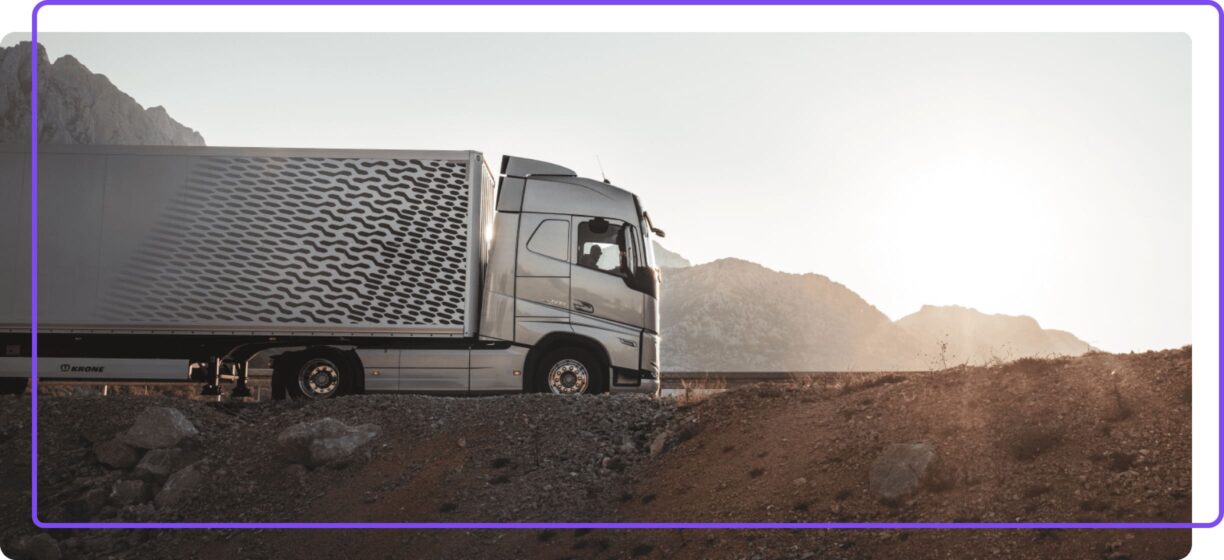Freight forwarding is a multi-faceted process with many different stages. Therefore, this calculation of freight forwarding costs is complicated. So, we have crafted this article to discuss the freight forwarding cost structure and define the factors influencing it.
What is freight forwarding?
Freight forwarding is coordinating and shipping goods from the manufacturer to an individual, corporation, market, or other final destination. Freight forwarders organise cargo on behalf of shippers. This process often requires the help of one or several carriers. It also typically involves moving items across international borders.
How do freight forwarding companies charge for their services?
Freight shipping consists of numerous elements. Purchasing, handling receipts and payments, arranging logistics, monitoring, and reporting – to name a few. So, understanding the costs of the whole delivery process is not straightforward.
Some freight forwarders include all the costs in their quote. Others offer some services as optional add-ons. Sometimes cargo forwarders cannot offer a specific service at all. This means you will need to make other arrangements at your expense.
A clear breakdown of what a quote includes is vital before engaging with freight forwarders. The following section will outline the key elements contributing to the principal cost of freight shipment.
Factors that affect the cost of freight forwarders
Here is a list of the elements of shipping that need to be paid. Some rates might sound too good to be true. That is why we always recommend confirming with the chosen forwarder what is included in their quote.
Weight and volume
The size and weight of the cargo are of equal importance as one will determine how much a shipment will cost. Therefore, to calculate the chargeable weight of a shipment, we need to convert the volume into a weight equivalent.
Then, the actual weight is compared with the volumetric weight. Whichever of the two is greater will define the cost of a shipment. As a result, if the goods are light but take up much space, they will be more expensive to ship than heavy but smaller items.
Type of cargo
There are so many cargo types that it would be hard to list them all. However, one thing is clear – you cannot treat all goods the same way.
Perishable products require a particular container. Dangerous goods need more careful handling. Makeup and drugs will incur an FDA filing fee. Oversized goods will not fit in a standard container. They might even need a crane or other equipment for loading and unloading. Such cargo will be more expensive to ship.
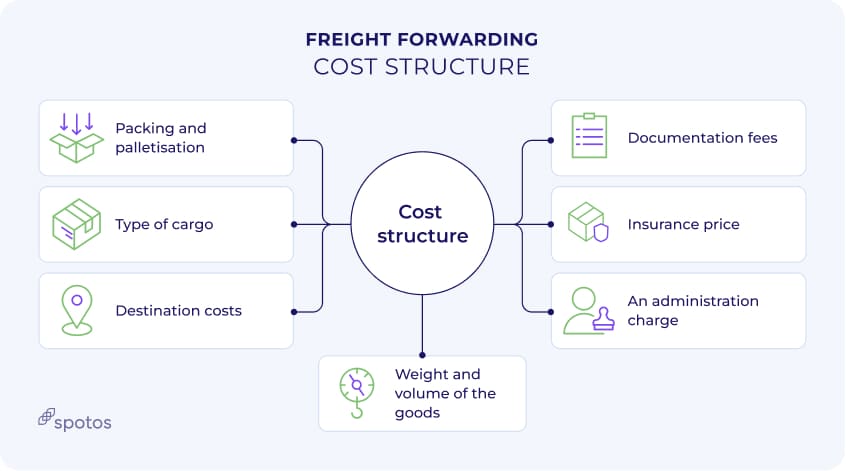
Packing and palletisation
Goods are legally required to be palletised and packed in a specific way when importing and exporting. However, most forwarders can palletise and pack items as additional services. It does come with an extra charge but guarantees that the goods meet the government regulations at the destination.
The worst thing that can happen regarding palletisation and packing is having goods returned to the port of origin. Trust us that would be a waste of time and very costly!
Container costs
Shippers must pay for a full container load (FCL) or a less-than-container load (LCL), depending on the cargo size. Most shipments do not require a full container. So, carriers combine them with other shipments in a single unit. In this way, shippers pay only for the space their goods occupy.
This suggests LCL is cheaper if the cargo does not fill a whole container. However, sharing a container with other shipments also means that there will be a payment for separating these shipments at the destination port.
Destination costs
Once the goods reach their final destination, many things must be done. Furthermore, they will not be free of charge! First, there is a charge for terminal handling and clearing the products at the loading and discharge ports.
Other charges include an additional security surcharge, warehousing fees, and the cost of inland haulage if necessary. As mentioned above, the destination is also likely to charge for unpacking all the shipments from the same container in the case of LCL shipments.
Documentation fees
Many documents play a role in freight shipping: bills of lading, invoices, import and export documents, etc. Freight forwarders tend to complete the required documentation for a fee.
Insurance
International law requires that all carriers have liability insurance. It provides minimal coverage but leaves the goods vulnerable. From May 2021 to April 2022, over a billion packages were lost globally at almost €40 billion (Dawson, C. 2022).
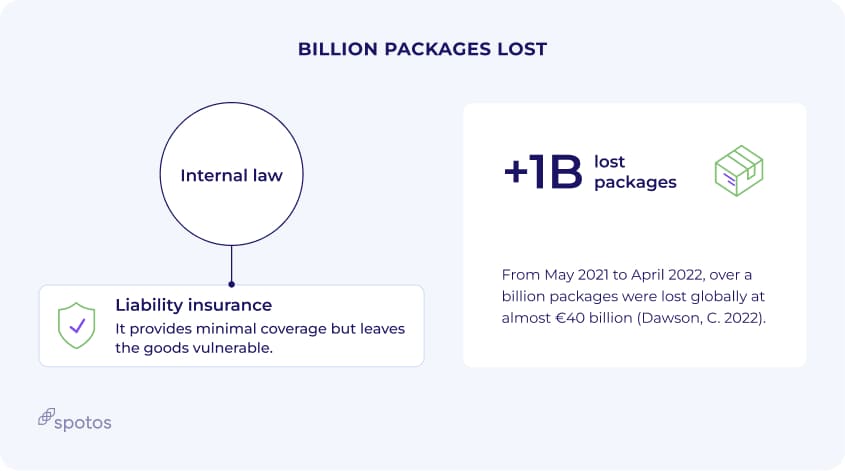
Freight forwarders offer cargo insurance as an add-on service. Spotos does, too. We reimburse if the goods get lost, stolen, or damaged in transit. Buying it from an insurer or broker is possible if a forwarder does not have cargo insurance. However, this might be pricier.
Administration charge
Freight forwarders simplify the complex process of shipping. They organise, coordinate, and manage all the intricacies of sending freight where it needs to go. So, it is understandable why freight forwarders charge this much-deserved fee.
Use digital freight forwarder services to reduce administration costs. Bookings of logistics services used to include never-ending calls and long emails to a freight forwarder. With digital technology, all of that is automated and happens in the twink of an eye.
Carrier costs
Irrespective of how the goods are carried – by air, sea, or land – transportation incurs expenses. The key factor influencing carrier cost is the shipping route. Sending something far away is more expensive than bringing it somewhere nearby. Not always, though.
The popularity of the route is also significant. As a rule, more frequently travelled roads are cheaper. Less popular routes covered by fewer carriers give a freight forwarder less opportunity to negotiate better carrier deals.
Additional surcharges
Extra costs can pop up at any time in the shipment process. Before, during, or even after the transit. Common additional freight forwarder charges are as follows:
- Bunker Adjustment Factor (BAF) or fuel surcharge
- The currency Adjustment Factor (CAF) protects carriers from fluctuations in currency
- Fumigation fee for killing, suffocating, or poisoning pests
- Demurrage penalty for delayed loading or unloading
- War risk surcharge
- Peak season surcharge
Three tips for reducing the cost of cargo forwarding
Studies anticipate that the European logistics market will reach about €570 billion by 2025 (Allied Market Research, 2021). So we have prepared three handy tips for reducing the costs involved in freight forwarding and staying ahead of others in this competitive environment.
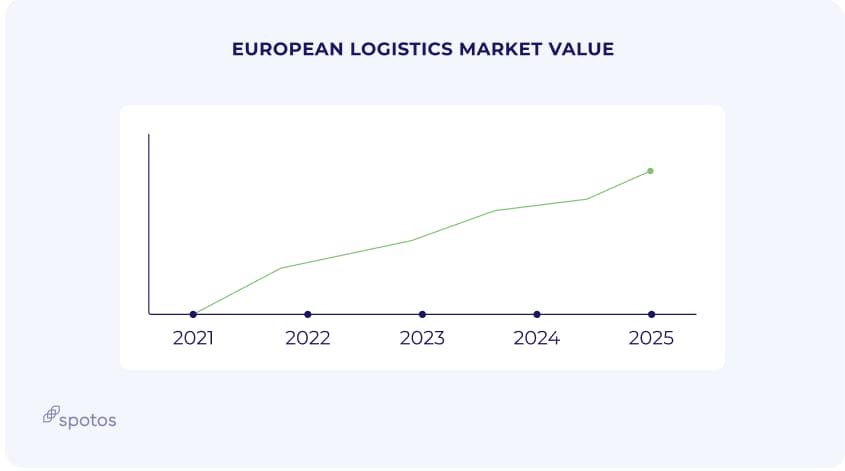
Do some market research.
The European freight market is fragmented. There is a mix of global and regional carriers but no dominant players. Given the above, reviewing all available routes, modes, and rates for all shipments is vital to improving freight optimisation and avoiding uneducated shippers.
Diversify the carrier network.
Over 6.2 million trucks circulate throughout the EU (Acea, 2022). However, even 6 million belong to small fleets of no more than 20 trucks (Geotab, 2020). With such a large volume of smaller-sized fleets, it is essential to have access to a vast network of carriers.
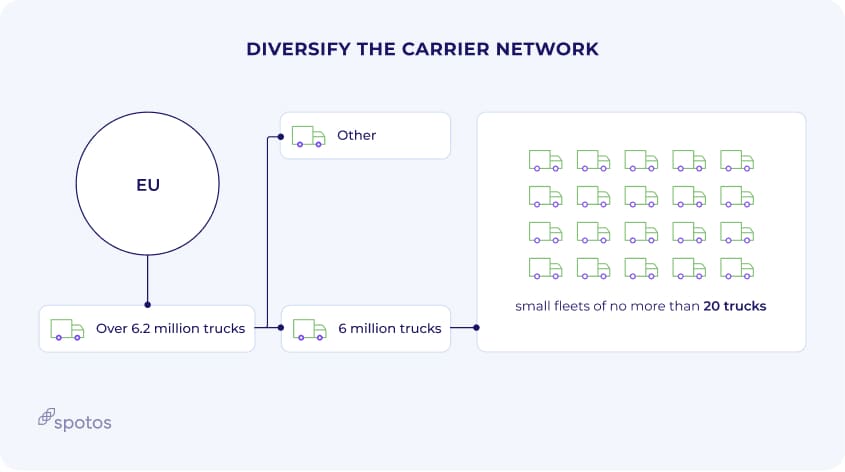
Take advantage of a digital freight forwarder.
Modern technology helps avoid human errors that negatively affect the shipping process. For example, the cargo might need to return to its origin port because of employees’ mistakes. You can prevent such mishaps if you employ Artificial Intelligence (AI) to conduct market research and do manual tasks for you.
How to get the best deal on freight forwarding services?
The simple answer – transfer your search for a reliable freight forwarder online. That is where Spotos comes to the rescue! The Spotos platform is designed to make your operations more transparent and efficient.
Spotos uses AI to develop pricing algorithms that provide immediate price recommendations. This brings transparency to transportation costs.
The Spotos platform features real-time tracking. It will let you know where your shipment is every step of the way.
Spotos offers an extensive network of carriers and shippers. You can choose from over 20 thousand trucks and more than 3 thousand carriers.
Automation is key to avoiding human error. Spotos lets users sign contracts online, collect and distribute payments, and automate invoicing.
Never worry about your shipment with Spotos additional insurance services. Be protected whenever your goods are lost, stolen, or damaged in transit.
In a nutshell
Freight forwarding means coordinating the shipment of goods from the manufacturer to an individual, corporation, market, or any other final destination.
The following factors affect the cost of cargo forwarding: weight and volume, cargo type, packing and palletisation, container costs, documentation fees, destination charges, insurance, administration fees, carrier costs, and extra surcharges.
To reduce the cost of cargo forwarding, do some market research, diversify the carrier network, and partner with a digital freight forwarder.
If you want to cut the cost of cargo forwarding and get transparent quotes from currently available freight forwarders, sign up for Spotos.
Frequently Asked Questions
Three primary freight charges are as follows:
- Consignee collects – the freight recipient pays for all charges upon receipt.
- Third-party – a logistics organisation pays charges on behalf of a shipper or recipient.
- Prepay – the freight is payable to the carrier before loading the cargo.
No flat fee applies to freight forwarding services. There are too many factors to consider. We recommend using a digital freight forwarder to get instant price references. To see how it works, try Spotos AI-based pricing algorithms.
The primary reason for high freight costs is the impact of the COVID-19 snowball. The pandemic has disturbed the global supply chain since 2020. We used to pay about €1,250 per container for global shipping (St. Louis Fed, 2022). Now, we must pay about €9k for the same.
